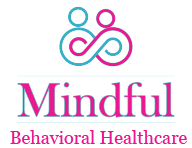Can children suffer from depression?
Children can certainly suffer from depression. Depression in children can be identified when symptoms of sadness are persistent, and if the child manifests behaviors which interfere with their normal social activities, interests, academic performance or family interaction. Although this condition is of a serious nature, there are effective treatments.
How I can identify if my child is depressed?
The symptoms of depression may be varied. Often they go unnoticed because it is thought to be normal or that it is part of the changes associated with the development.
Symptoms associated with depression include:
- Irritability or anger
- Ongoing feelings of sadness and hopelessness
- Social isolation
- Sensitivity to rejection
- Changes in appetite (increase or decrease)
- Changes in sleep patterns
- Crying spells
- Difficulty concentrating
- Fatigue and lack of energy
- Physical symptoms, (psychosomatic) unresponsive to treatment such as stomachache or headache
- Reduced ability to function socially
- Poor self-esteem
- Thoughts of death or suicidal thoughts
Not all children have the same symptoms and these may vary depending on the environment they are in. Although many children can keep working quite well in structured environments, most kids with significant depression have changes in their social activities, lose interest in school and have changes in their personal appearance.
It is important to monitor the presence of substance use, particularly in children over 12 years. In addition we must take seriously any attempt to harm.


